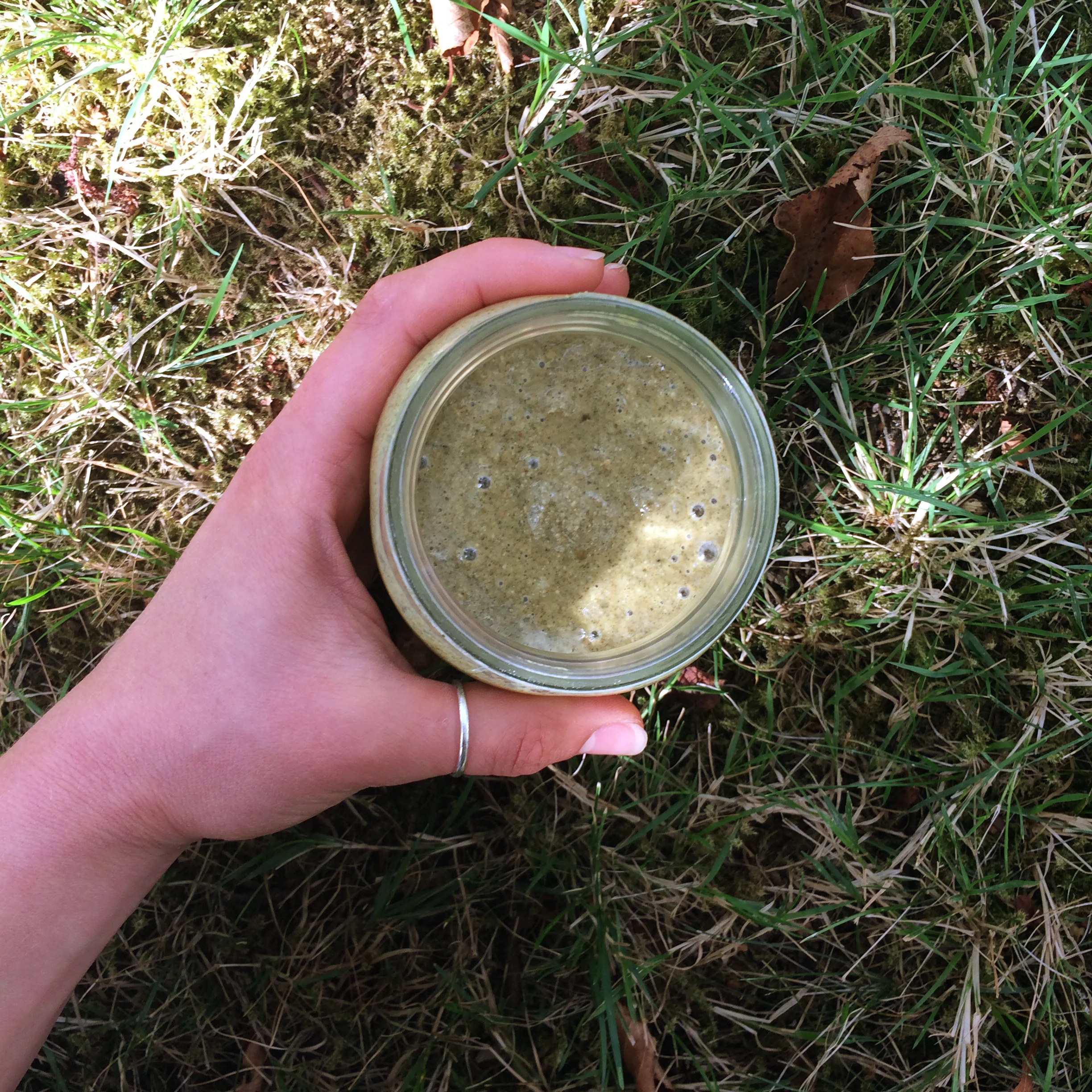Pumpkin Seed Butter
Pumpkin seed butter is one of my favourite nut butters because it has nutty iron-rich flavour that I really enjoy. Pumpkin seeds are particularly nutritionally dense, which is why I have highlighted them here, but really you could make this recipe with any nut or seed. Making homemade nut butter is a simple skill, but there are a few tricks to learn. Once you have mastered it, you can experiment with different ingredients and different combinations. Nut and seed butters are easy to make and a great way to add healthy fats and protein to your day.
Recipe:
3 – 6c. roasted unsalted pumpkin seeds
optional: avocado oil (or melted/liquid coconut oil)
a high quality food processor or Vitamix/Blendtec blender
Simply add the pumpkin seeds to your blender. Start slow and increase the speed. Puree. Keep it going because it will take longer than you think. Seriously. This is the key to making nut butter: don’t get impatient. Stop the blender to scrape the sides down every couple of minutes. The seeds will start to get grainy, then start to clump together (at which point you will be making a loud racket). Depending on your blender, you may need to drizzle in a little avocado oil (approximately 1 Tbsp to start). The oil helps lubricate things along. The less powerful your food processor/blender is the more oil you will need. The mixture will start to go from clumpy to a grainy textured liquid. The longer you leave it the creamier it becomes – this texture is personal preference. Again, don’t be afraid to REALLY blend. One caveat however: don’t let your blender overheat, and if it starts to feel warm turn it off and let it cool down for a while.
Variations:
This is a great concept recipe because there are endless variations. To the pumpkin seeds, you could try adding in:
¼ tsp Sea salt
¼ tsp Cinnamon
1 Tbsp Honey
1 tsp chopped Rosemary
1 Tbsp cacao powder
*amounts proportional to 3c pumpkin seeds
Of course, you could also use almonds, cashews, pecans, or any other nut in place of the pumpkin seeds. Once you get the hand of the blending process, the opportunities are endless!
A few notes on ingredients:
If you have raw pepitas (another word for pumpkin seeds) you can toast them in a 350F oven for about 10 minutes, watching them closely so they don’t burn. If you have pre-salted pumpkin seeds, these will likely taste too salty once in a more dense butter form, so I suggest removing some of the salt. I spread out a dish towel, pour the pumpkin seeds over top, and then lay a second dish towel on top of that (like a pumpkin seed sandwich), then rub the top layer around to get some of the salt off.
I choose avocado oil because it is fairly flavourless. I like coconut oil also and think it goes well with the pumpkin seed flavour. You can use any oil you like really, although I don’t recommend the olive oil + pumpkin seed combo, from a flavour perspective.
Health benefits:
Pumpkin seeds are high in essential minerals such as iron, manganese, phosphorus, copper, and zinc. Magnesium in particular is important because it is used to make ATP (the molecule your cells use as their energy currency), as well as synthesize DNA and RNA, and is needed for healthy muscle function especially the heart. Beyond that, it is a cofactor in hundreds of reactions in the cells all over your body. Estimates are that up to 80% of Americans are deficient in magnesium, and the numbers are likely similar in Canada.
The other minerals are important too. Zinc is essential for immune function. Iron is necessary to make hemoglobin so your red blood cells can properly transport oxygen throughout the body and prevent iron deficiency anemia. The other minerals are essential in many ways too.
Pumpkin seeds also contain a high amount of antioxidants. They have multiple forms of vitamin E, as well as lignins and phenolic compounds. Having a combination of antioxidants is beneficial because they are able to work in concert to attenuate cytotoxic (cell damaging) and genotoxic (DNA damaging) substances in the body. Combinations of antioxidants also are important so they can regenerate one another, rather than being used up and becoming pro-oxidant molecules themselves. Studies show pumpkin seeds mitigate oxidative damage caused by certain immune suppressive drugs and aflatoxins/mycotoxins from fungi and mold. Pumpkin seeds reduce CRP in mice (a lab test that is a marker of overall inflammation in the body). Mouse models and in vitro (test tube) studies also show pumpkin seeds mitigate oxidative damage resulting from diabetes, as well as pro-cancerous mutations.
Overall pumpkin seeds are a great part of a healthy, whole food diet. Food is the best medicine!
References:
A review from July 2017 on the status of current research about the health benefits of pumpkin seeds (my main source for this article, and it contains a ton more information):
One study with hypertensive patients showing that pumpkin seeds can help to reduce blood pressure as well as have a variety of other cardioprotective mechanisms.


